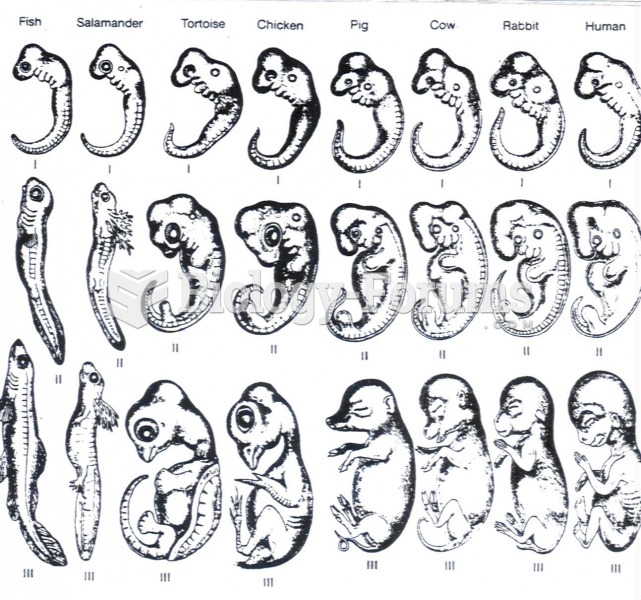|
|
|
The training of an anesthesiologist typically requires four years of college, 4 years of medical school, 1 year of internship, and 3 years of residency.
The largest baby ever born weighed more than 23 pounds but died just 11 hours after his birth in 1879. The largest surviving baby was born in October 2009 in Sumatra, Indonesia, and weighed an astounding 19.2 pounds at birth.
When Gabriel Fahrenheit invented the first mercury thermometer, he called "zero degrees" the lowest temperature he was able to attain with a mixture of ice and salt. For the upper point of his scale, he used 96°, which he measured as normal human body temperature (we know it to be 98.6° today because of more accurate thermometers).
A strange skin disease referred to as Morgellons has occurred in the southern United States and in California. Symptoms include slowly healing sores, joint pain, persistent fatigue, and a sensation of things crawling through the skin. Another symptom is strange-looking, threadlike extrusions coming out of the skin.
This year, an estimated 1.4 million Americans will have a new or recurrent heart attack.
 Aquatic microclimates: aquatic environments generally show less temperature variation compared to te
Aquatic microclimates: aquatic environments generally show less temperature variation compared to te
 A cast of LB1 (left) was compared to several microcephalic skulls, amongst which is that of the micr
A cast of LB1 (left) was compared to several microcephalic skulls, amongst which is that of the micr





